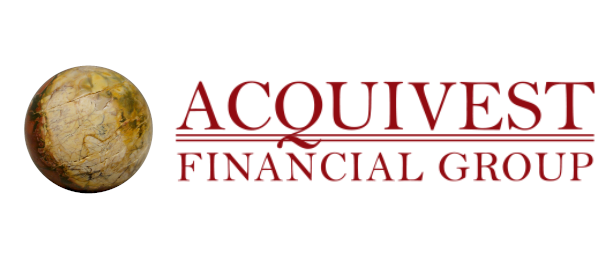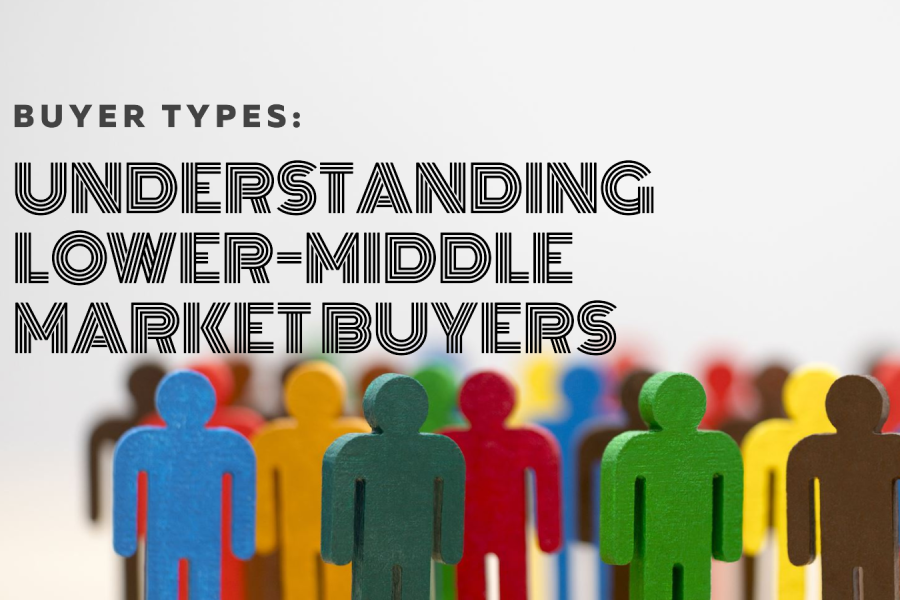Garren Work, MBA
VP, Mergers & Acquisitions Advisor for Businesses <$100MM
Click Here to view original article
When it comes to dealmaking, understanding the types of buyers involved can be pivotal to a successful transaction. While each buyer is as different as each seller, buyers can be categorized into a few distinct types. Each buyer type approaches the deal with common motivations, strategies, and timelines. M&A in the Lower-Middle Market is especially unique because it attracts a range of buyer types, blending characteristics of both Main Street and Middle-Market businesses.
It is typically encouraged for lower-middle market sellers to remain open-minded to all types, so as not to limit options. However, understanding the types and how they align with a seller’s goals in a transaction are crucial to dealmaking. Here, we break down the three primary types and their defining characteristics.
Strategic Buyers
Who They Are: Similarly situated companies within the same or adjacent industry, aiming to integrate the target company into their own operations.
Motivations: Strategic buyers focus on synergies, including growth synergies or operational synergies. Cross-selling products and services, expansion into new geographies, or services new industry verticals can have an exponential impact in such combinations long-term. Operational synergies, such as shared resources, can enhance workforce utilization, streamline operations, and reduce redundancy – ultimately saving costs and improving efficiency. While headlines in the media featuring layoffs and asset sell-offs from mega-cap deals get a lot of attention, LMM deals often leverage experienced teams or assets that can complement their current operations.
Advantages: Strategic buyers are typically willing to pay a premium due to synergies expected through integration. This type leads to quicker exits for the selling owner and the highest chance of the successful continuation of the firm.
Challenges: While strategic buyers often preserve the firm’s operations, they may limit legacy continuity as the business usually adopts the buyer’s identity. A successful post-close integration can be complex and may require detailed examination into operations, opportunity, and even culture. This examination, through due diligence, can create challenges when balancing confidentiality and protecting proprietary information until a deal is complete.
Financial Buyers
Who They Are: Private equity firms, family offices, and other investment entities focused on achieving proven returns on investment (ROI).
Motivations: Financial buyers prioritize ROI, focusing on targets with steady growth, strong margins, and defensible business models. This type seeks clear growth potential which may include a roll-up strategy in a fragmented market, where they can target add-on or tuck-in investments and eventually be sold for profit. Occasionally, financial buyers partner with an Operating Partner, but typically value strong management teams expected to transition with the business.
Advantages: Financial buyers bring capital, growth-focused expertise, and industry connections and expertise needed to take a company to the next level. This type can be an ideal type for an owner seeking to ‘take chips off the table’ but seeking to remain involved. A clear plan for value creation and defined exit strategy should lead to a ‘second bite at the apple’.
Challenges: With a shorter-term outlook compared to strategic buyers, financial buyers prioritize ROI, which can sometimes limit long-term planning for the acquired company. Dealmaking may be a bit more complex with deal structures that may include roll-over equity or executive compensation packages. Detailed examination of financial records requires clean, consistent, and detailed books and records.
Owner-Operators
Who They Are: Individuals or small groups of individuals seeking to manage and grow a business themselves. Owner-operators can be high-net-worth individuals (HNWI) or have substantial financial support. These individuals can be first-time business owners or may be classified as serial entrepreneurs.
Motivations: Typically, owner-operators look for small to mid-sized companies that can offer them a desired lifestyle - chance to work independently, generate income, and have hands-on control. This type often seek opportunities to apply their own experience and add value to the target company, often in ways that may not be immediately obvious to sellers. Owner-operators value consistency and strong margins as they often seek lending or co-investment.
Advantages: Owner-operators bring personal investment in the business, often preserving the culture and maintaining close relationships with employees and customers. Since lifestyle is a driving motivation – the right ‘fit’ can lead to the highest offers. Working independently, they often lead to the smoothest, quietest transitions.
Challenges: Owner-operators may lack in certain functional areas being less well-rounded than the other types (which consist of teams) and in comparison to many sellers. Individuals from an adjacent industry may lack industry-specific knowledge. This type has the widest variability in experience in dealmaking – from no experience to the most savvy creating unpredictability. Individual experience can lead to unusual requests including deal terms, over-reliance on outside advisors, or poor assumptions – which may create unique challenges while working towards closing.
Hybrid Buyer Types
There are several hybrid buyer types that can bring traits, characteristics and motivations from two buyer types. Ideally, hybrid buyers combine advantages from both types with fewer challenges, though they may sometimes amplify challenges from both. Here are a few examples:
Smaller Strategic Buyers – Strategic Buyers that are on the smaller side may conduct themselves in a similar fashion to an Owner-Operator, which is inherently what they are. For example, lending, fit, and lifestyle may all play an impact on decision making while pursuing synergies in a combination.
Independent Sponsors & Search Funds – These are often highly qualified individuals who share a lot of traits and behaviors of an Owner-Operator, but receive substantial financial support from Financial Buyers.
Add-on, Bolt-on, Tuck-in Acquisitions – Financial buyers conducting a roll-up within an industry typically establish a platform and seek target companies to acquire and integrate into the existing platform. They may behave like financial buyers funding pursuit of synergies in a combination.
Strategic buyers are typically the most sought buyer type due to the familiarity and synergies. However, each buyer type can bring different trade-offs to the dealmaking process, and each buyer type can certainly close a deal. Remaining open to all buyer types will lead to the best result. Aligning a seller’s goals and understanding high level motivations of a buyer is key to working with them towards getting a deal closed.

